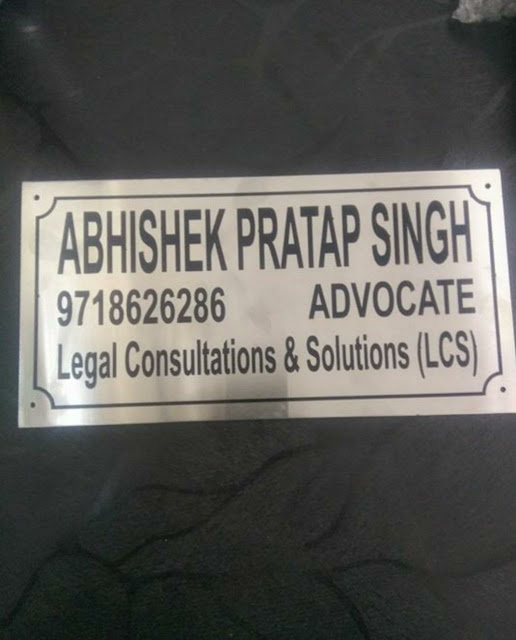Asymmetric Arbitration Clause
ASYMMETRIC ARBITRATION CLAUSE
Asymmetric
arbitration clause is where only one party has the right to refer disputes to
arbitration, but the other must litigate.
The case
of NB Three Shipping v
Harebell Shipping [2004]
EWHC 2001 (Comm) concerned an application to stay arbitration proceedings under
an asymmetric clause. The shipowner was entitled to bring arbitration but the
charterer was limited to High Court proceedings. Morison J noted the clause
gave “‘better’ rights” to the ship owners but refused to stay the
arbitration.
An asymmetric arbitration clause is not valid (nor indeed even an arbitration agreement) until the point at which the party exercises its option to arbitrate – prior to that, there is a lack of mutuality (Union of India vs Bharat Engineering Corporation ILR 1977 Delhi 57).
In (New India Assurance Co Ltd v Central Bank of India & Ors AIR 1985 Cal 76) it was held that an asymmetric arbitration clause constitutes a valid arbitration agreement from the outset, albeit enforceable only by the party with an option to arbitrate.
, such considerations may be “essential in the interests
of international trade and commerce of the better relations between the
countries and the people of the world” ( U.L. Lastochkina
ODESSA USSR v Union of India AIR 1976 ANDH PRA 103).
The Supreme
Court of India in TRF Ltd v Energy Engineering Projects Ltd (July 3, 2017, Civil Appeal No.
5306 of 2017) reiterated that a clause entitling one party to appoint an
arbitrator alone and without the input of the other is valid. The High Court of
Judicature in Bombay also dealt with a clause whereby one party was solely
entitled to appoint the arbitrator and did not consider it necessary to
consider whether that aspect of the clause was valid
Unilateral Clause of Arbitration
A unilateral option clause is a dispute resolution clause
which confers an exclusive right to elect a specific dispute resolution method,
i.e., it provides the option of resorting to arbitration or litigation;
however, this option is conferred upon only one party.
In Bhartia Cutler Hammer v. AVN Tubes (1995 (33) DRJ 672), the Delhi
HC held that a party could not have an exclusive right to initiate arbitration
as the Indian Arbitration and Conciliation Act, 1996, presupposed that there
must be a mutual arbitration agreement between the parties, and an opportunity
for bilateral invocation. Notwithstanding parties’ express consent to such a
clause, it would not be deemed a valid arbitration agreement.
In Emmsons International Ltd. v. Metal
Distributors (2005
(80) DRJ 256), court observed that unilateral option
clauses were void as they restrained one party’s recourse to legal proceedings,
in contravention of Section 28 of the Indian Contract Act, 1872. The court
added that a unilateral clause would be
void for being contrary to the public policy of India.
In Lucent
Technology v. ICICI Bank (2009 SCC OnLine Del 3213), the Delhi HC again held a unilateral option
clause to be invalid. The court relied on both Bhartia Cutler and Emmsons
International and invoked Section 28 of the Indian Contract Act, 1872, implying
that the party’s right to recourse through legal proceedings had been
infringed.
The Madras HC decided to go against the tide in Castrol India Ltd. v. Apex Tooling Solutions ((2015) 1 LW 961 (DB)) the court held that the party seeking to invoke arbitration through its sole option could not do so, having failed to object, and having even participated during the preliminary stages of litigation.
the Delhi HC in Fuerst Day Lawson Ltd. v. Jindal Exports Ltd. (MANU/DE/3204/2009), upheld the validity of a unilateral option clause. However, the impact of this decision on the position of the court is unclear, as the clause was upheld not under Indian law, but under applicable English law.
“In
The Event of a Vague Arbitration Clause, Intent of Parties Will Guide It”
ZHEJIANG BONLY ELEVATOR GUIDE RAIL
MANUFACTURE CO. LTD.
VS.M/S JADE ELEVATOR COMPONENTS ARBITRATION
PETITION (CIVIL) NO. 22 OF 2018 – THE SUPREME COURT OF INDIA
Hon'ble Supreme Court in the case of Enercon
(India) Limited & Ors. Vs. Enercon GMBH & Anr., (2014) 5 SCC 1 Hon'ble Supreme Court has held
that the courts have to adopt a pragmatic approach and not a pedantic or technical
approach while interpreting or construing an arbitration agreement or
arbitration clause. Therefore, when faced with a seemingly unworkable
arbitration clause, it would be the duty of the court to make the same workable
within the permissible limits of the law, without stretching it beyond the
boundaries of recognition. It is held that a common sense approach has to be
adopted to give effect to the intention of the parties to arbitrate. It is held
that the court ought to adopt the attitude of a reasonable business person,
having business common sense as well as being equipped with the knowledge that
maybe peculiar to the business venture. The arbitrate clause cannot be
construed with a purely legalistic mindset, as if one is construing a provision
in a statute. The Hon'ble Supreme Court in the said judgment adverted to the
UNCITRAL Model Law and held that the Courts play a supportive role in
encouraging the arbitration to proceed rather than letting it come to a
grinding halt.
Case with Ambiguous Arbitrations Clause
Jay Bhagwani Construction Co vs Haware
Engineers And Builders ... on 25 October, 2018
Fact
The
respondent issue a Work Order dated 18th June 2013 thereby appointing the
applicant as a Contractor for certain works in respect of the development of a
building at Kasar Wadavali, Ghodbunder Road, Thane. Clause 32 of the said work
order is extracted as under : -
"Incase of any dispute, our
Managing Director's decision will be final and binding on both the parties any
dispute shall be referred to arbitration or any court."
In my view, the intention of both the parties was clear that
the matter shall be referred to the arbitration if the dispute arises between
the parties and decision of such arbitrator will be final and binding on the
parties. The Court has to adopt a common sense approach to give effect to the
intention of the parties to arbitrate. In my view, this Court cannot interpret
the said clause 32 as a statute and cannot accept the interpretation as sought
to be canvassed by the learned senior counsel for the respondent. The Court has
to encourage the parties to refer the dispute to the arbitration and while
interpreting an arbitration clause has to adopt a liberal approach.
The dispute arose between the parties. The applicant vide its
advocate's letter dated 15th September 2017 called upon the respondent to pay a
sum of Rs.5,13,29,560.49 and with interest @ 18% p.a. In paragraph 28 of the
said letter, the applicant pointed out clause 32 of the said work order stating
that the said clause was an arbitration clause and the applicant reserved their
rights to invoke the said clause. There was no response to the said letter
addressed by the applicant through its advocate.
On 16th October 2017,
the applicant through its advocate invoked clause 32 of the said work order and
nominated a counsel of this Court to be the sole arbitrator and called upon the
respondent to confirm the same within a period of 30 days from the date of the
receipt of the said letter. In response to the said letter invoking clause 32,
the respondent through its advocate's letter denied that clause 32 of the work
order was an arbitration agreement. It was contended that first part of the
said clause contemplates a reconciliation process whereby the decision of the
Managing Director was given a finality. In the event of the dispute still
persisting, the parties had option either to agree for arbitration or seek
remedies through he judicial process. Clause 32 does not reveal any concluded
arbitration agreement. Since the respondent refused to appoint an arbitrator,
the applicant filed this application under Section 11(6) of the Arbitration and Conciliation Act, 1996 (for short "the said
Act") inter alia praying for appointment of a sole arbitrator.
Court’s Observation
A perusal of clause 32 of the work order indicates that the
said clause refers to the expression "dispute" and also refers to the
decision of the Managing Director of the respondent, in case of such dispute,
will be final and binding on both the parties. There is no punctuation between
the words "both the parties" and "any disputes shall be referred
to Arbitration or any Court." It is not the case of the respondent that
the dispute does not exist between the parties. The application for appointment
of an arbitrator is opposed mainly on the ground that the said clause 32 did
not provide for any procedure, for complying with the principles of natural
justice or adjudication of disputes in a judicial manner by the managing
director. It is the case of the respondent that the said clause would only
indicate that inspite of intervention of the managing director, if the dispute
between the parties is not resolved, in that event, the parties have option
either to refer the dispute to arbitration or seeks remedies through the
judicial process and thus it was not the intention of the parties that the
arbitration be the sole dispute resolution mechanism. In paragraph 6.4 of the
affidavit-in- reply filed by the respondent, it is the contention of the
respondent that at the most, the said clause 32 is only a reflection of a
possibility of the parties agreeing to arbitration in the future. On the other
hand, it is the case of the applicant that the managing director of the
respondent was a ppn 17 carap-121.18(j).doc named arbitrator under the
said clause 32 for the purpose of resolution of disputes and differences
between the parties.
For the reasons recorded aforesaid, in my
view, the arbitration agreement exists between the parties. Since the
respondent had failed to appoint an arbitrator, this application filed
under Section
11(6) of
the Arbitration and Conciliation
Act,
1996 is maintainable.
International Law
Both the New York Convention (article II.1.) and the Model
Law (article 7.1.) establish that the arbitration agreement must refer to
differences which have arisen or which may arise between them in respect of a
defined legal relationship, whether or not contractual. In addition to those
generic requirements, the arbitration agreement must refer to a concrete and
specific legal relationship between the parties. The parties must have a legal
link, which has given or may give rise to the controversies submitted to
arbitration. Although this legal relationship will most frequently be of a
contractual nature, it may well be non-contractual, provided that it can be
identified and delimited. An arbitration agreement written in terms too
ambiguous or generic, which does not restrict its scope to the disputes arising
from a particular juridical relation, would not be acceptable. For instance,
the parties could not agree to submit to arbitration “any dispute that could
arise between them.” Such clause could be questionable, as it would entail
waiving the court’s jurisdiction in too generic and indiscriminate terms.
United Kingdom




Very good information
ReplyDeleteThanks thanks
DeleteThanks
ReplyDeleteVery good information bro
ReplyDeleteWell written very nc information
ReplyDeleteNice..go with IRAC method!
ReplyDeleteReally appreciable
ReplyDeleteNice
ReplyDelete